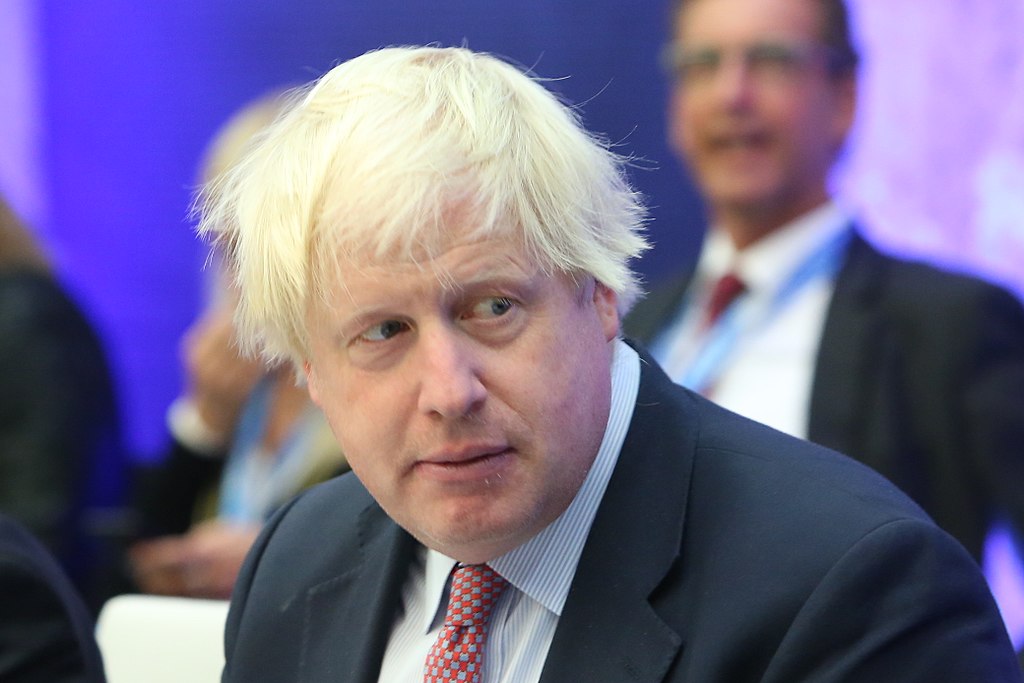Boris Johnson has been ordered to appear in court over claims he lied by saying the UK gave the EU £350m a week.

The Tory leadership candidate has been accused of misconduct in public office after making the claim during the 2016 EU referendum campaign.
It is a private prosecution launched by campaigner Marcus Ball, who crowdfunded £200,000 for the case.
Mr Johnson’s representatives have called the case a “stunt” that is being “brought for political purposes”.
The preliminary hearing will take place at Westminster Magistrates’ Court and the case will then be sent to the Crown Court for trial.
The BBC’s assistant political editor, Norman Smith, said the allegations could not come at a worse time for Mr Johnson, and his critics are likely to use the claims against him in the upcoming contest to become next Tory leader and prime minister.
The £350m figure was used by the pro-Brexit Vote Leave group throughout the referendum campaign on the side of a red bus, calling for the UK to “fund our NHS instead”.
Mr Johnson faces three allegations of misconduct in public office, between 21 February 2016 and 23 June 2016 – after he had announced he was backing Leave, up until the referendum vote – and 18 April 2017 to 3 May 2017 – during the general election that year.
Mr Ball’s lawyers lodged an application in February to summons Mr Johnson, claiming the MP had deliberately misled the public during the first campaign, and repeated the statement during the second.
Lewis Power QC, who represents Mr Ball, said Mr Johnson’s conduct had been “both irresponsible and dishonest”.
“Democracy demands responsible and honest leadership from those in public office,” he said.
‘Infamous statement’
Mr Power said the prosecution’s application was not brought to undermine the result of the 2016 referendum and it was not about what could have been done with the saved money.
“The allegation with which this prosecution is concerned, put simply, is Mr Johnson repeatedly misrepresented the amount that the UK sends to Europe each week,” he said.
“It is concerned with one infamous statement: ‘We send the EU £350m a week.’
“The UK has never sent, given or provided £350m a week to Europe – that statement is simply not ambiguous.”
But Mr Johnson’s representatives said the case was about “the desire on the part of individuals, such as Mr Ball, to undermine the referendum result”.
They said in submission to the court: “The application is a stunt. Its true purpose is not that it should succeed, but that it should be made at all. And made with as much public fanfare as the prosecution can engender.”
In her written ruling, District Judge Margot Coleman said: “The applicant’s case is there is ample evidence that the proposed defendant knew that the statements were false.”
She continued: “I accept that the public offices held by Mr Johnson provide status, but with that status comes influence and authority.
She added that there was sufficient evidence to send to court for trial.
Anyone can bring a private prosecution – for example, the RSPCA pursue animal cruelty cases all the time.
But the Director of Public Prosecutions, Max Hill QC, has the power to either take over a case or stop it in its tracks.
He can therefore authorise the Crown Prosecution Service to take over Mr Johnson’s case if the allegations made by Mr Ball pass the CPS’ own evidence test, there is a public interest in doing so, or there is a particular need to get involved.
The DPP can stop a private prosecution if he concludes it’s vexatious, malicious or flawed for a range of other reasons.
Given the district judge has already declared there is a prima facie case to be tested, the DPP may decide there’s nothing he can usefully add and stay well clear.
So Mr Johnson’s lawyers may already be looking at how to challenge the decision’s lawfulness. And that could mean the case – like many other private prosecutions – becomes mired in legal argument and appeals.
Kindly follow us on twitter:@AfricanVoice2









